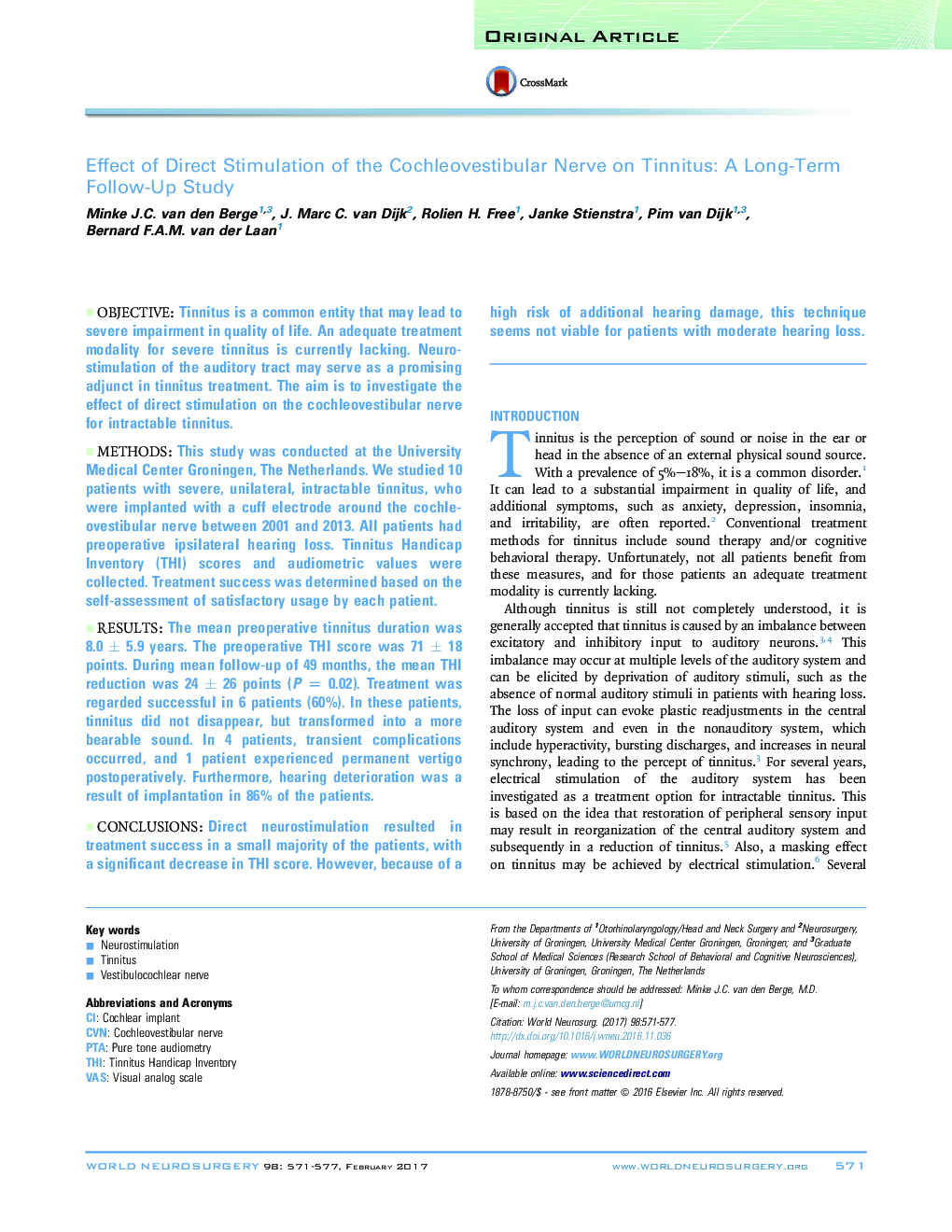| Article ID | Journal | Published Year | Pages | File Type |
|---|---|---|---|---|
| 5634966 | World Neurosurgery | 2017 | 7 Pages |
ObjectiveTinnitus is a common entity that may lead to severe impairment in quality of life. An adequate treatment modality for severe tinnitus is currently lacking. Neurostimulation of the auditory tract may serve as a promising adjunct in tinnitus treatment. The aim is to investigate the effect of direct stimulation on the cochleovestibular nerve for intractable tinnitus.MethodsThis study was conducted at the University Medical Center Groningen, The Netherlands. We studied 10 patients with severe, unilateral, intractable tinnitus, who were implanted with a cuff electrode around the cochleovestibular nerve between 2001 and 2013. All patients had preoperative ipsilateral hearing loss. Tinnitus Handicap Inventory (THI) scores and audiometric values were collected. Treatment success was determined based on the self-assessment of satisfactory usage by each patient.ResultsThe mean preoperative tinnitus duration was 8.0 ± 5.9 years. The preoperative THI score was 71 ± 18 points. During mean follow-up of 49 months, the mean THI reduction was 24 ± 26 points (P = 0.02). Treatment was regarded successful in 6 patients (60%). In these patients, tinnitus did not disappear, but transformed into a more bearable sound. In 4 patients, transient complications occurred, and 1 patient experienced permanent vertigo postoperatively. Furthermore, hearing deterioration was a result of implantation in 86% of the patients.ConclusionsDirect neurostimulation resulted in treatment success in a small majority of the patients, with a significant decrease in THI score. However, because of a high risk of additional hearing damage, this technique seems not viable for patients with moderate hearing loss.
